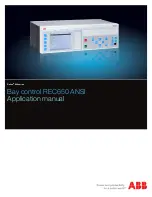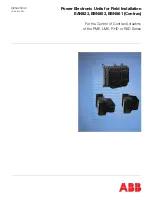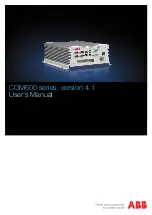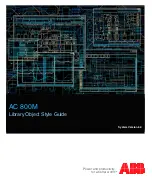
AcroPack Series AP560
CAN Bus Interface Module
- 37 -
Collision Detection:
Collisions occur if two nodes attempt to transmit at the
same time.
Collision Resolution:
Collisions are resolved by bitwise arbitration. Highest
priority messages (lowest binary identifiers) are sent first without delay and
lower-priority messages are automatically re-transmitted later. A dominant
bit (logic 0) has priority over a recessive bit (logic 1).
Bitwise arbitration works by comparing each node’s transmitted data bit by
bit. All nodes are synchronized by adjusting individual bit times as a function
of bit time quanta (see section on bit timing). Synchronization takes place on
recessive to dominant edges. A Hard Synchronization at the start of each
frame and subsequent re-synchronizations during a message frame ensures
corresponding bits match in time during a given transmission cycle. When a
node transmits a recessive bit on the bus, but detects a dominant bit on its
receiver, it realizes arbitration is lost and it immediately ceases transmission
and becomes a receiver. It will then wait for the next bus idle state and
attempt to retransmit. Eventually, lower priority messages will gain access to
the bus. Figure 7 shows an example of how this works for a frame with a
standard identifier
Figure 7 Bitwise Arbitration
Содержание AcroPack AP560
Страница 28: ...AcroPack Series AP560 CAN Bus Interface Module 28 Figure 2 Standard Data Frame...
Страница 30: ...AcroPack Series AP560 CAN Bus Interface Module 30 Figure 3 Extended Data Frame...
Страница 32: ...AcroPack Series AP560 CAN Bus Interface Module 32 Figure 4 Remote Frame...
Страница 34: ...AcroPack Series AP560 CAN Bus Interface Module 34 Figure 5 Error Frame...
















































